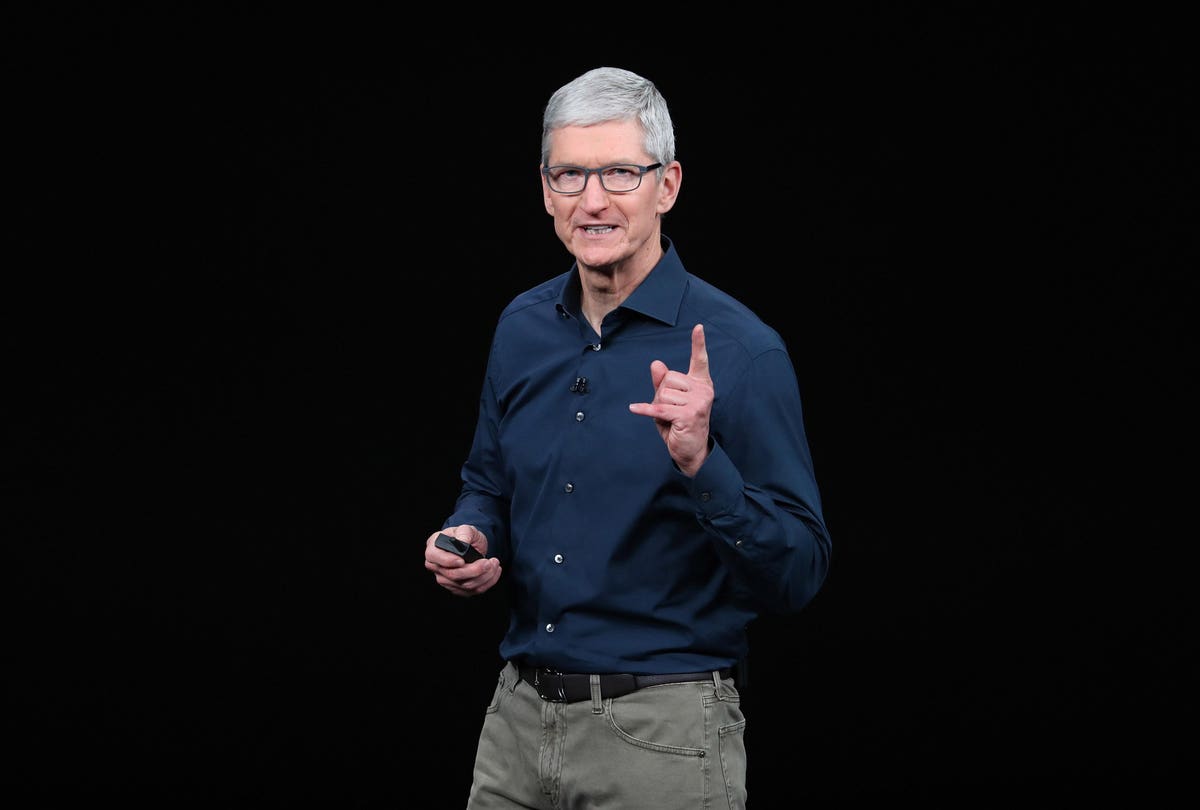TL;DR
- Apple’s annual Worldwide Developers Conference (WWDC) was held this week, with the biggest announcement coming in the form of their new AR headset, the Vision Pro
- At the same time, major cities across Canada and the U.S. have turned orange with smoke from Canadian wildfires, driving interest in companies who manufacture air filtration systems
- It’s not likely to drive much market value in isolation, but it’s part of an ongoing demand for clean technology
- Top weekly and monthly trades
Subscribe to the Forbes AI newsletter to stay in the loop and get our AI-backed investing insights, latest news and more delivered directly to your inbox every weekend. And download Q.ai today for access to AI-powered investment strategies.
Major events that could affect your portfolio
This week saw Apple’s annual presentation at WWDC both in-person and live streamed around the world. The event is a chance for Apple to speak directly to developers, to let them know what new tech and updates are coming on the horizon.
The idea behind the conference is that it gives third party companies a window prior to new Apple releases to update their apps and features to match the latest hardware functionality. Some years we see simple upgrades like better camera’s for the iPhone range, or an improved processor in the Macs.
And other years, like this one, we see the release of a brand new product. Specifically for 2023, Apple has announced their first augmented reality headset, known as the Vision Pro.
While this conference is designed for developers, it’s watched closely by consumers and investors alike, offering a peek into what’s to come.
The creation of a new category, which Apple is calling ‘spatial computing’ is one of the most exciting developments we’ve seen in years, and has the potential to take VR/AR into the mainstream, and drive substantial value for shareholders.
The key word here is potential, because Apple’s stock price is down 0.89% this week, with many unconvinced about the size of the headset market, as well as the Vision Pro’s price point at $3,500.
And this is always the risk for investors. There’s no way to know for sure whether any particular innovation, product, service or initiative is going to work or bomb. Diversification remains key.
—
In more somber news, we’ve seen wildfires take hold across Canada and the midwest and eastern U.S. states, with cities like New York, Toronto, Pittsburgh and Cleveland blanketed in smoke. It forced people inside, with schools closing, hundreds of flights delayed and many pro sports games postponed, including the New York Yankees, Philadelphia Phillies, Women’s National Soccer League and WNBA games.
Broadway shows are even being forced to stop mid-show as the stars struggle to continue due to poor air quality.
But of course, there’s always an investing angle for any event, both positive and negative. In this instance, we’ve seen an uptick in interest around stocks which could benefit from poor air quality.
Some examples include Carrier Global, who manufacture ventilation systems. The stock was up 8.6% this week on the wildfire news, but it’s a diversion from the recent trend for the stock, which has been recently downgraded by analysts from Morgan Stanley
MS
Another ventilation systems manufacturer, Trane Technologies, has benefited in a similar way, with its stock up 4.71% this week.
Meteorologists expect air quality to return close to normal for most impacted areas over the next 5 days, and while these short term events can provide momentum led boosts to stock prices, it’s important for investors to keep in mind that a single season of fires is unlikely to make a material difference to the fortunes of any companies in that space.
With that said, broader trends around air quality and the environment more generally are most definitely worth watching closely.
This week’s top theme from Q.ai
For investors who are looking to go green, there are a dizzying array of options available these days. And that’s lucky, because one of the challenges with environment, social and governance (ESG) investing is that there’s no standardized definition as to what counts as a “good” investment.
Some investors will place a high level of importance on reducing the use of fossil fuels, others will be more concerned about the world’s water quality. Some investors might be keen to exclude certain market sectors from their portfolio altogether (like oil companies, for example) while others will be prepared to invest in the sector, but only in the companies who are making the best efforts to make positive change.
It’s a bit of a minefield. But nevertheless, there’s a huge amount of potential value to be found for investors, regardless of where their moral compass points.
The most obvious example is Tesla, which has pioneered the electric vehicle movement, changed the way we think about transport and driven (*ba dum tish*) a huge amount of value for shareholders in the process.
At Q.ai, our Clean Tech Kit invests in companies and ETFs across a huge variety of clean technology. The sectors include wastewater management, electric vehicles, smart grids, lithium mining, hydrogen fuel cells and alternative fuels.
Every week our AI predicts which of these assets are likely to perform best on a risk adjusted basis, and then automatically rebalances the Kit in line with these projections. It’s not a full ESG portfolio, but it offers the potential to add some green to your portfolio, in more ways than one.
Top trade ideas
Here are some of the best ideas our AI systems are recommending for the next week and month.
Modine Manufacturing (MOD) – The heating technology company is a Top Buy for next week with our AI giving them an A rating in our Quality Value and Growth factors. Earnings per share is up 79% over the last 12 months.
Lixte Biotechnology (LIXT) – The biotech company is a Top Short for next week with our AI giving them an F rating in Quality Value, Technicals and Low Momentum Volatility. Earnings per share was -$3.64 over the 12 months to the end of March.
Universal Insurance Holdings (UVE) – The insurance and claims management company is a Top Buy for next month with an A rating in our AI’s Quality Value factor. Revenue is up 9.2% over the last 12 months..
Alteryx (AYX) – The software company is a Top Short for next month with our AI giving them an F rating in Quality Value. Earnings per share was -$4.37 over the last 12 months.
Our AI’s Top ETF trades for the next month are to invest in natural gas, U.S. regional banks and oil and to short U.S. energy stocks and U.S. small caps. Top Buys are the Invesco DWA Healthcare Momentum ETF, the iShares China Large-Cap ETF and the SPDR S&P Regional Banking ETF and the Top Short is the iShares Micro-Cap ETF.
Recently published Qbits
Want to learn more about investing or sharpen your existing knowledge? Q.ai publishes Qbits on our Learn Center, where you can define investing terms, unpack financial concepts and up your skill level.
Qbits are digestible, snackable investing content intended to break down complex concepts in plain English.
Download Q.ai today for access to AI-powered investment strategies.
Read the full article here













